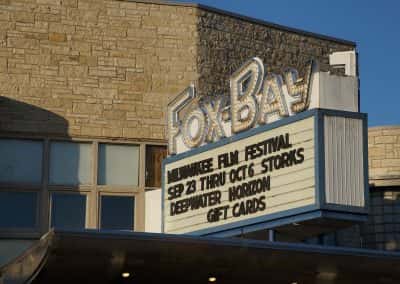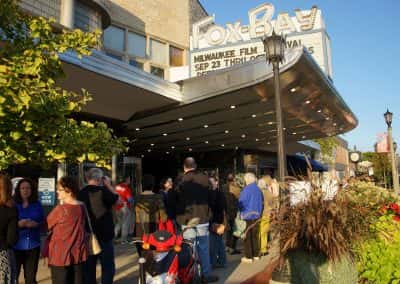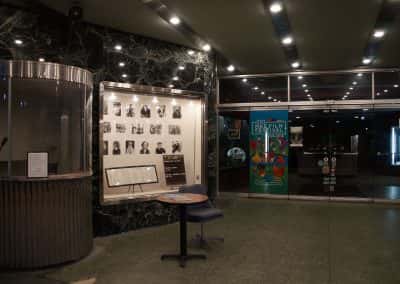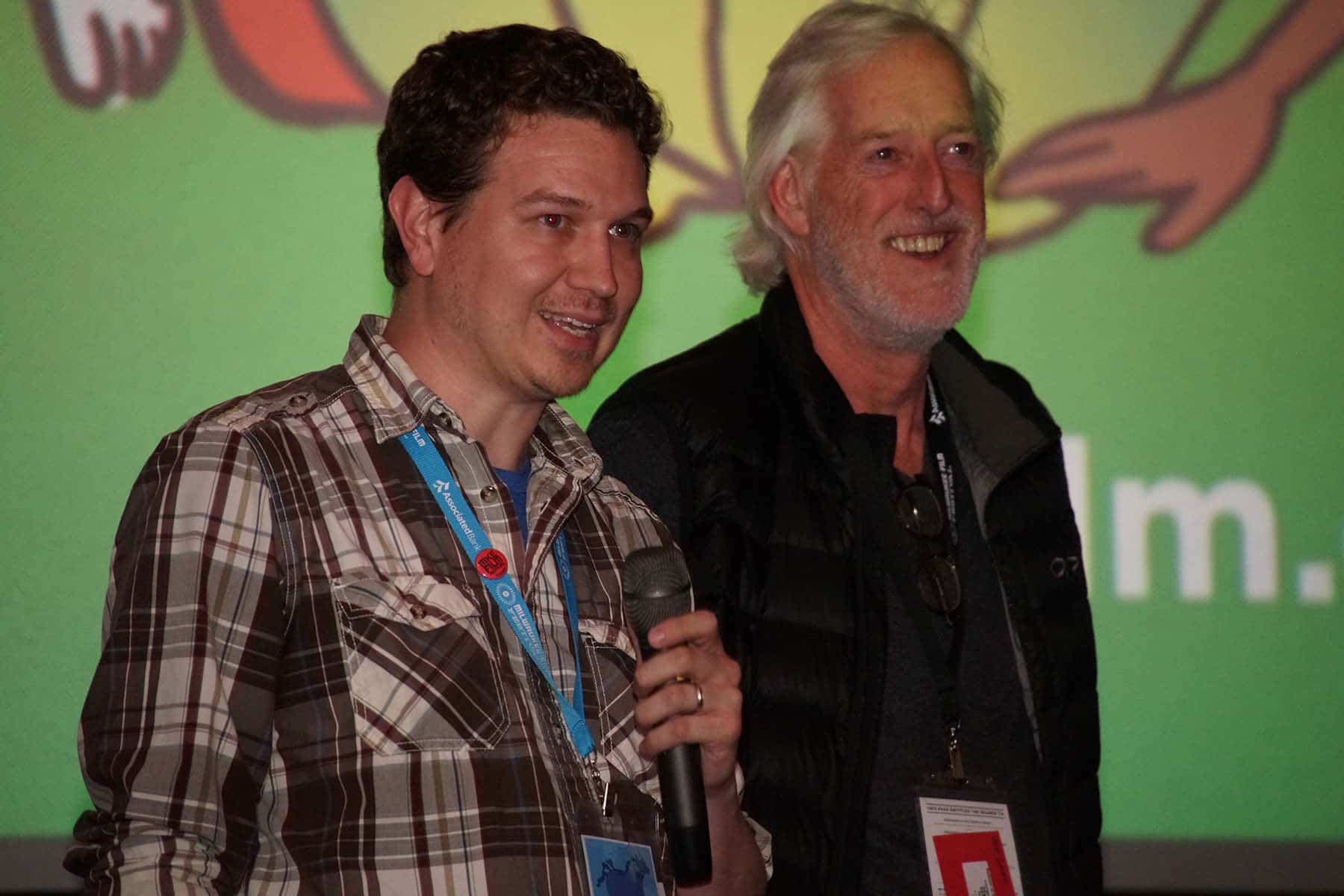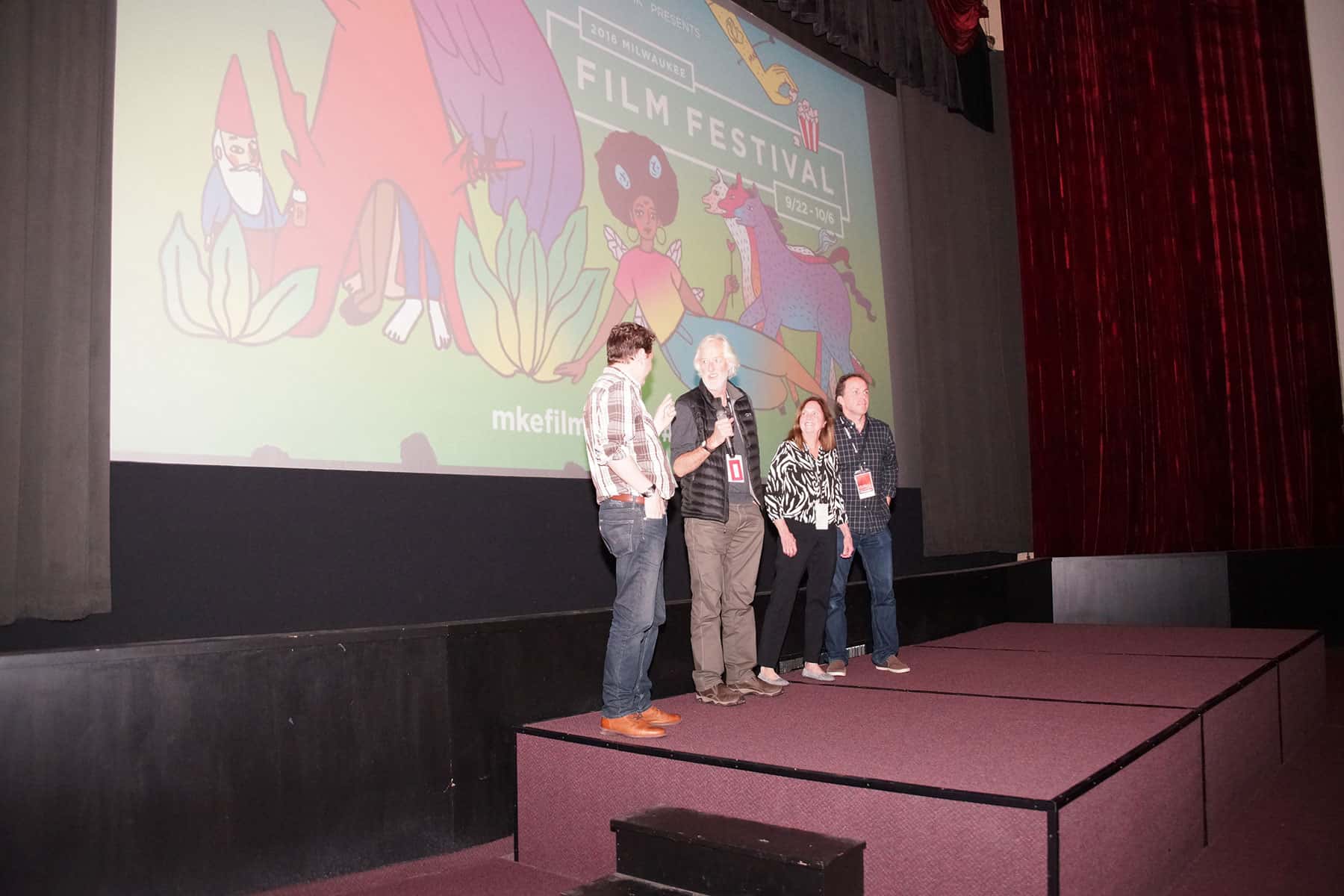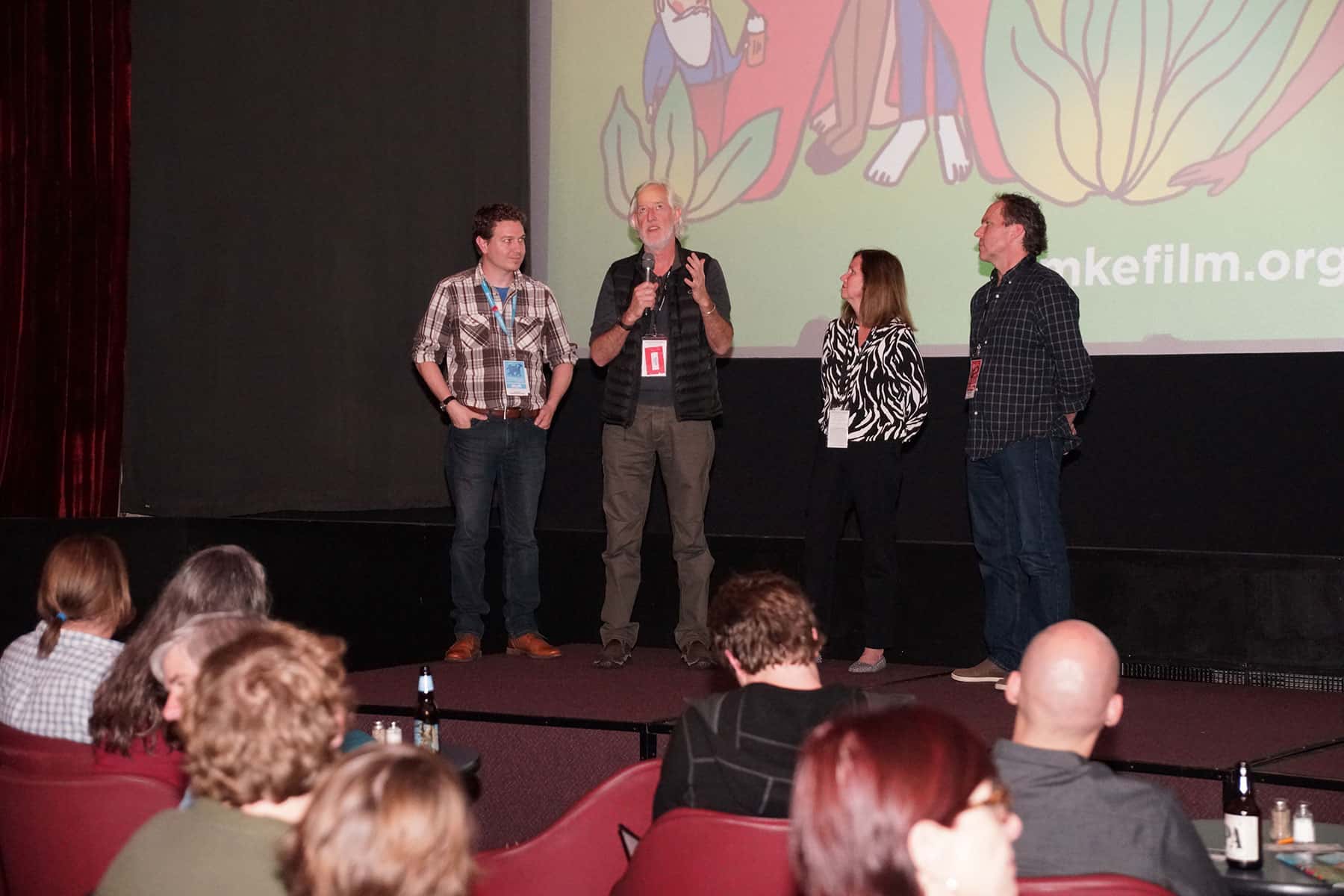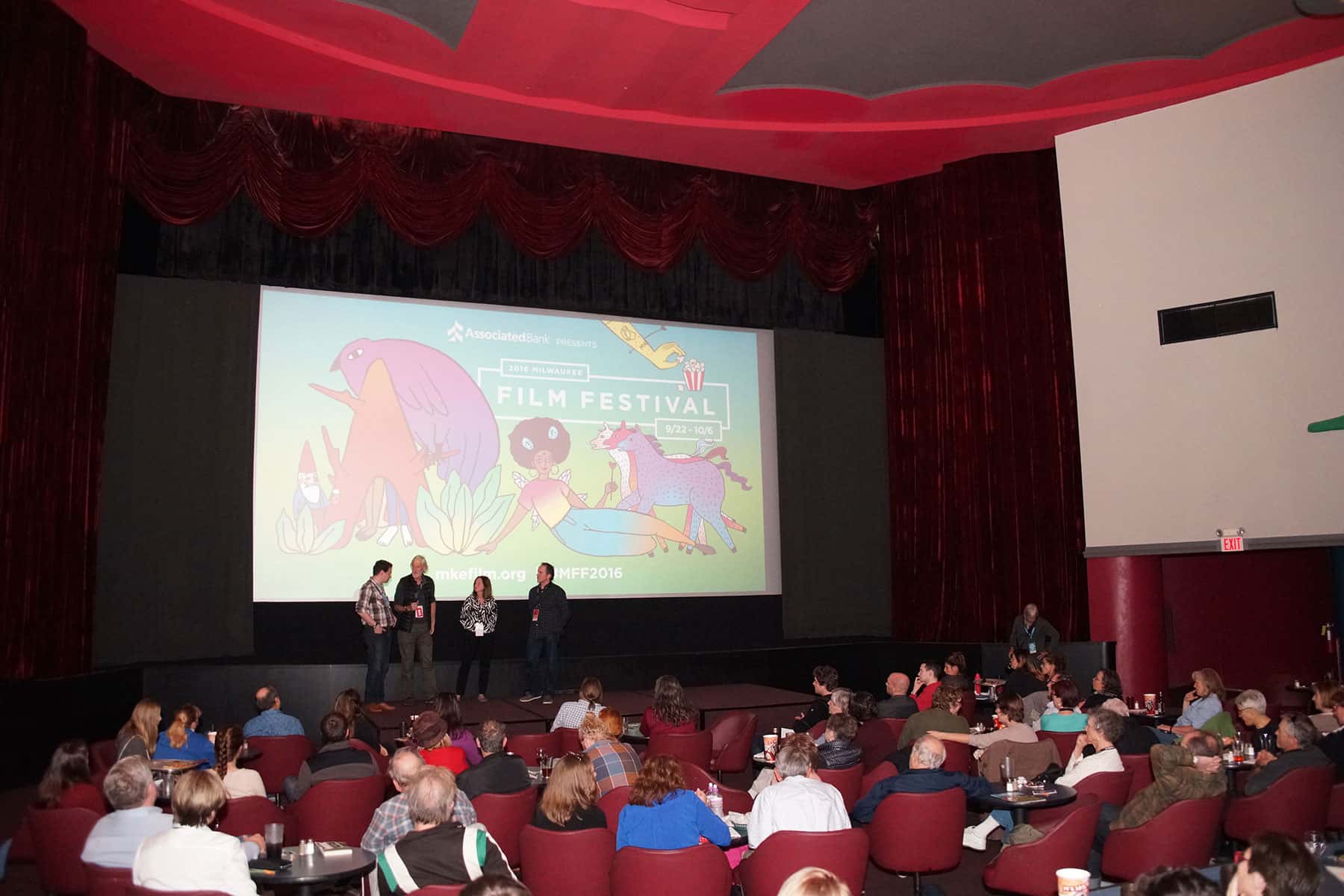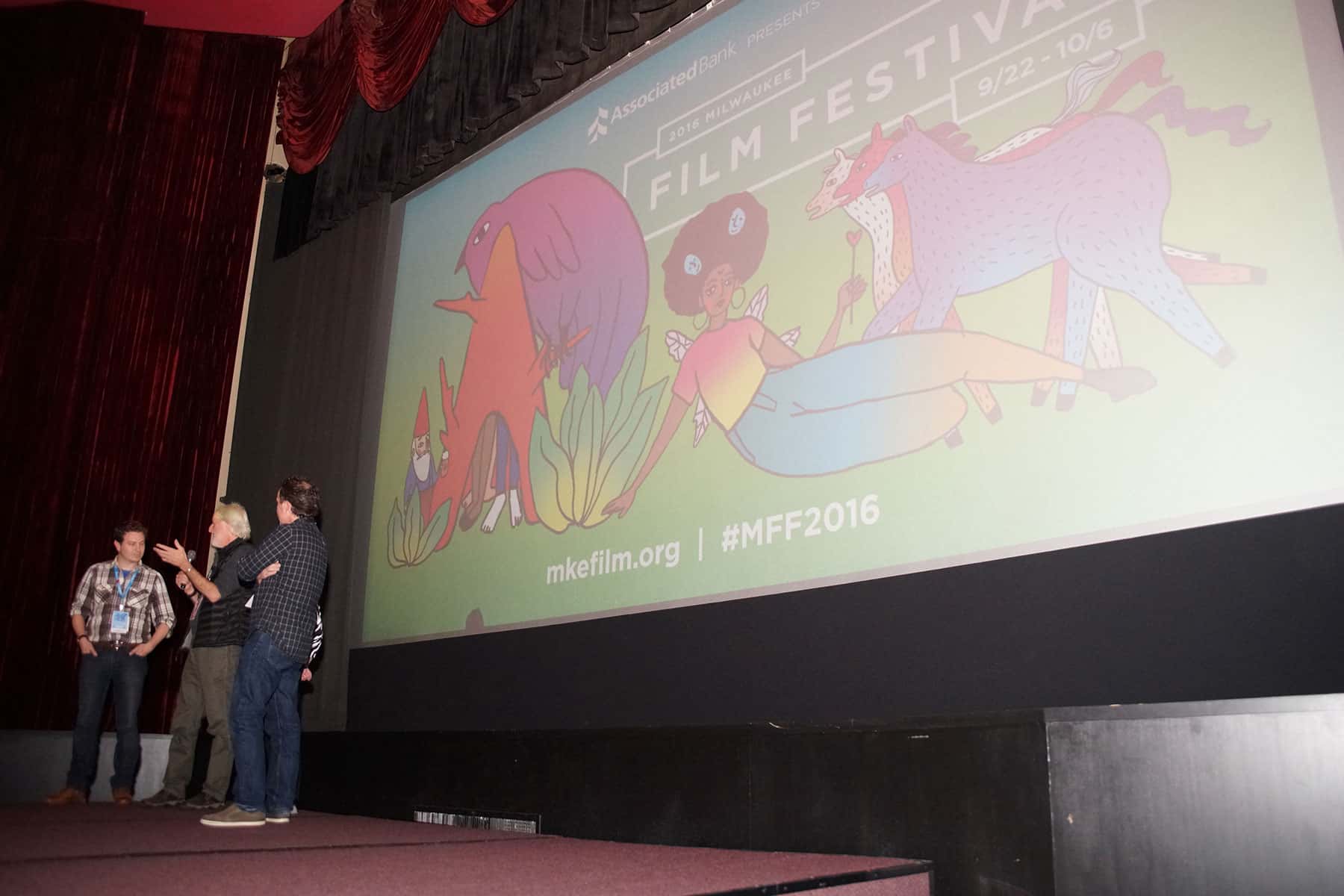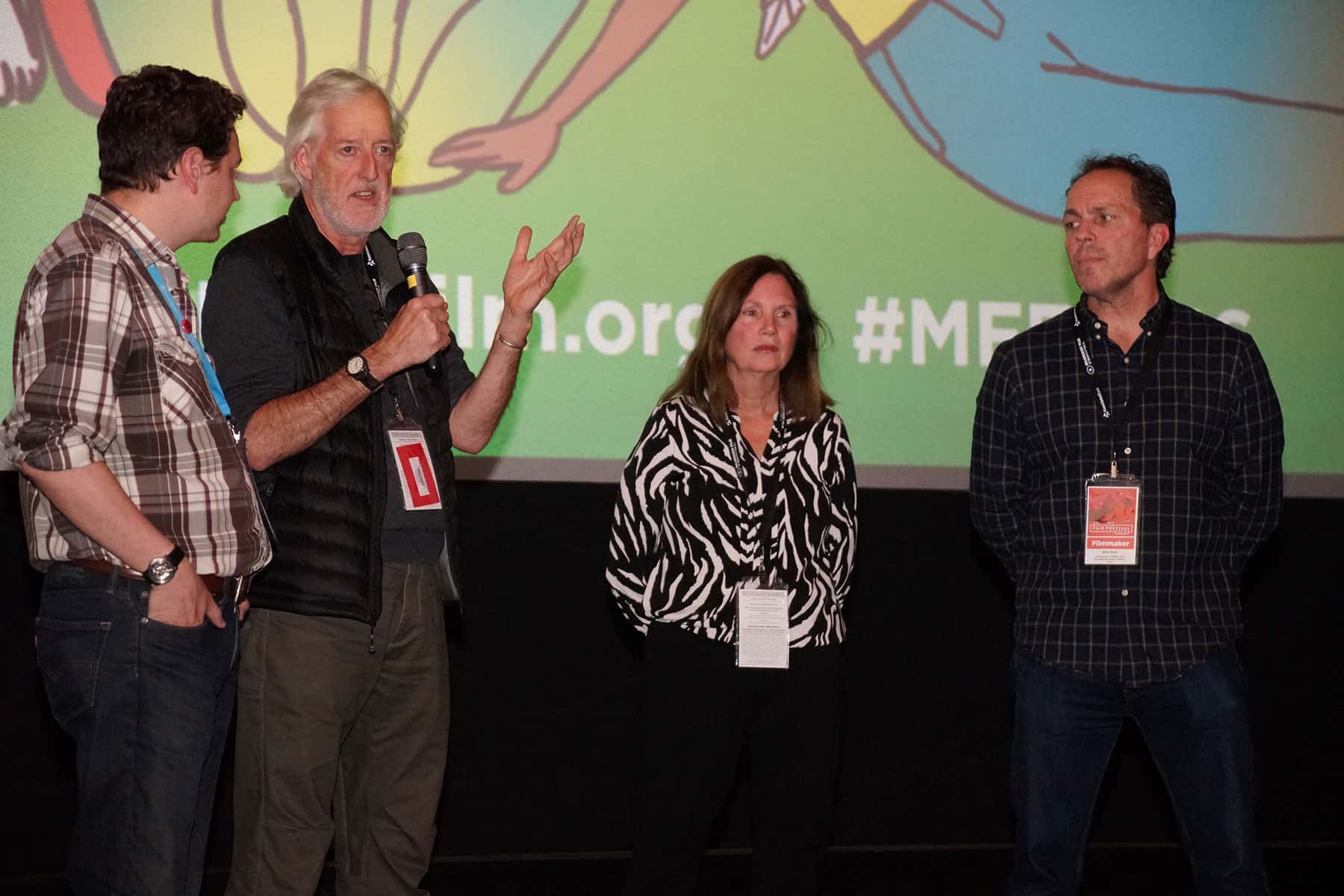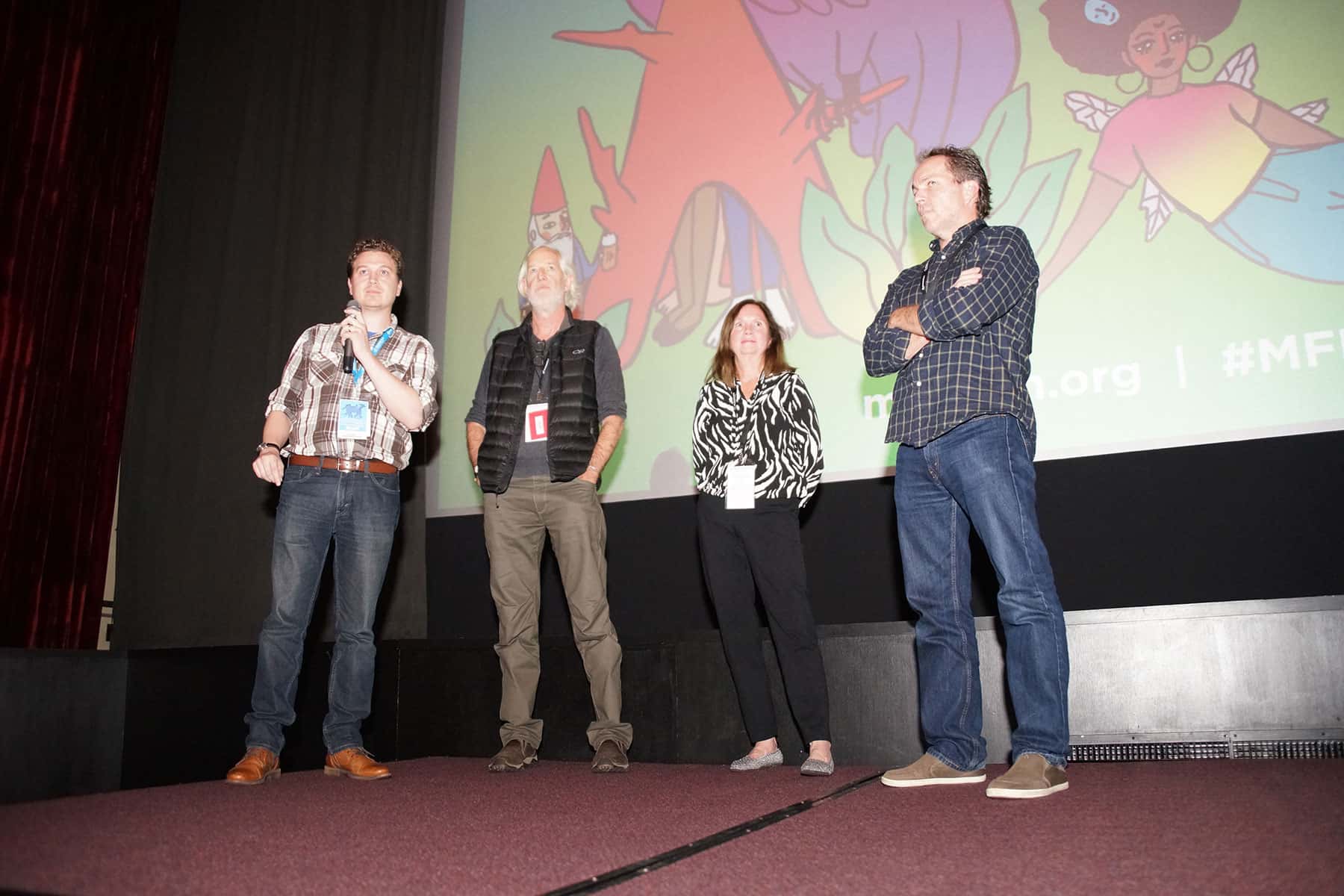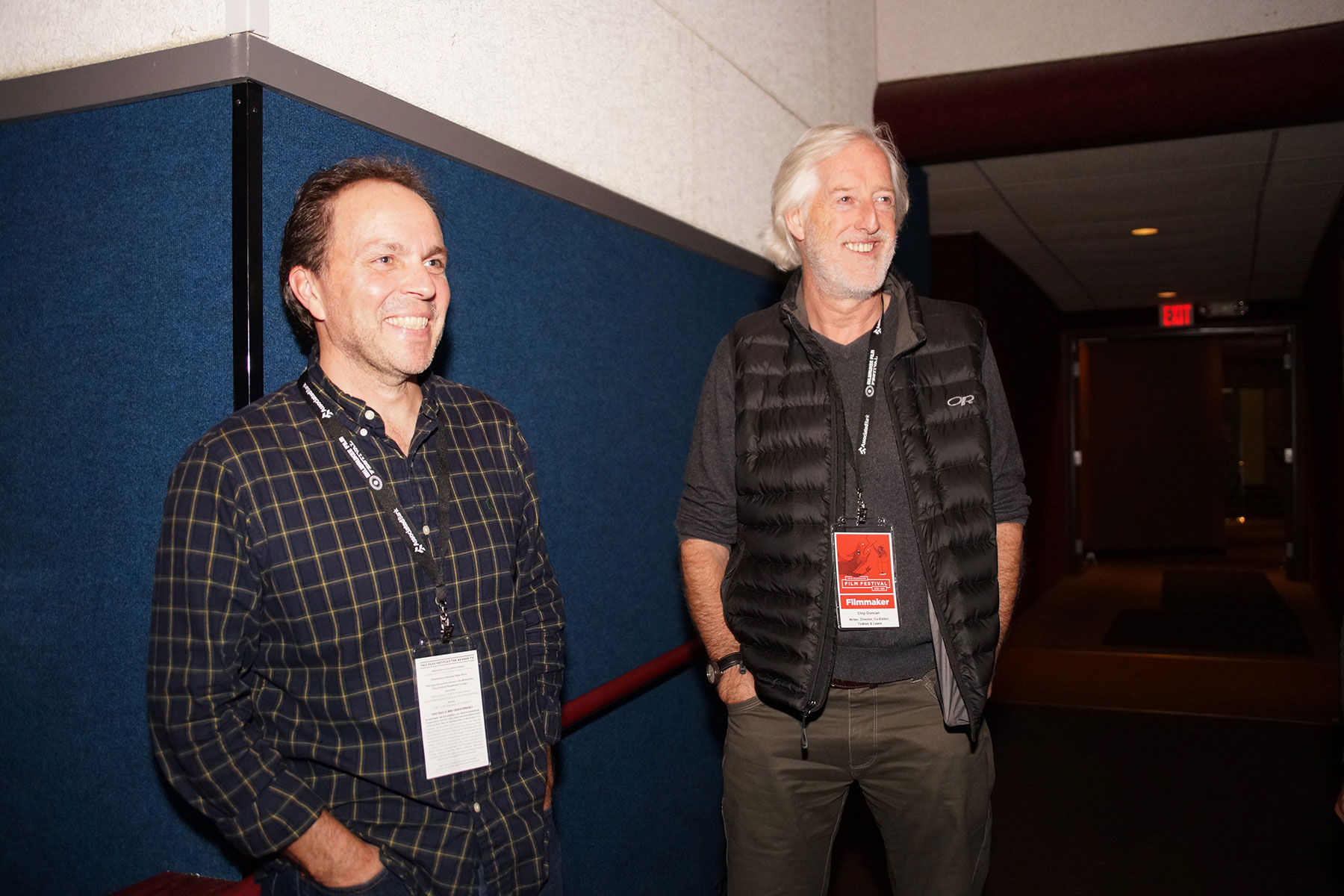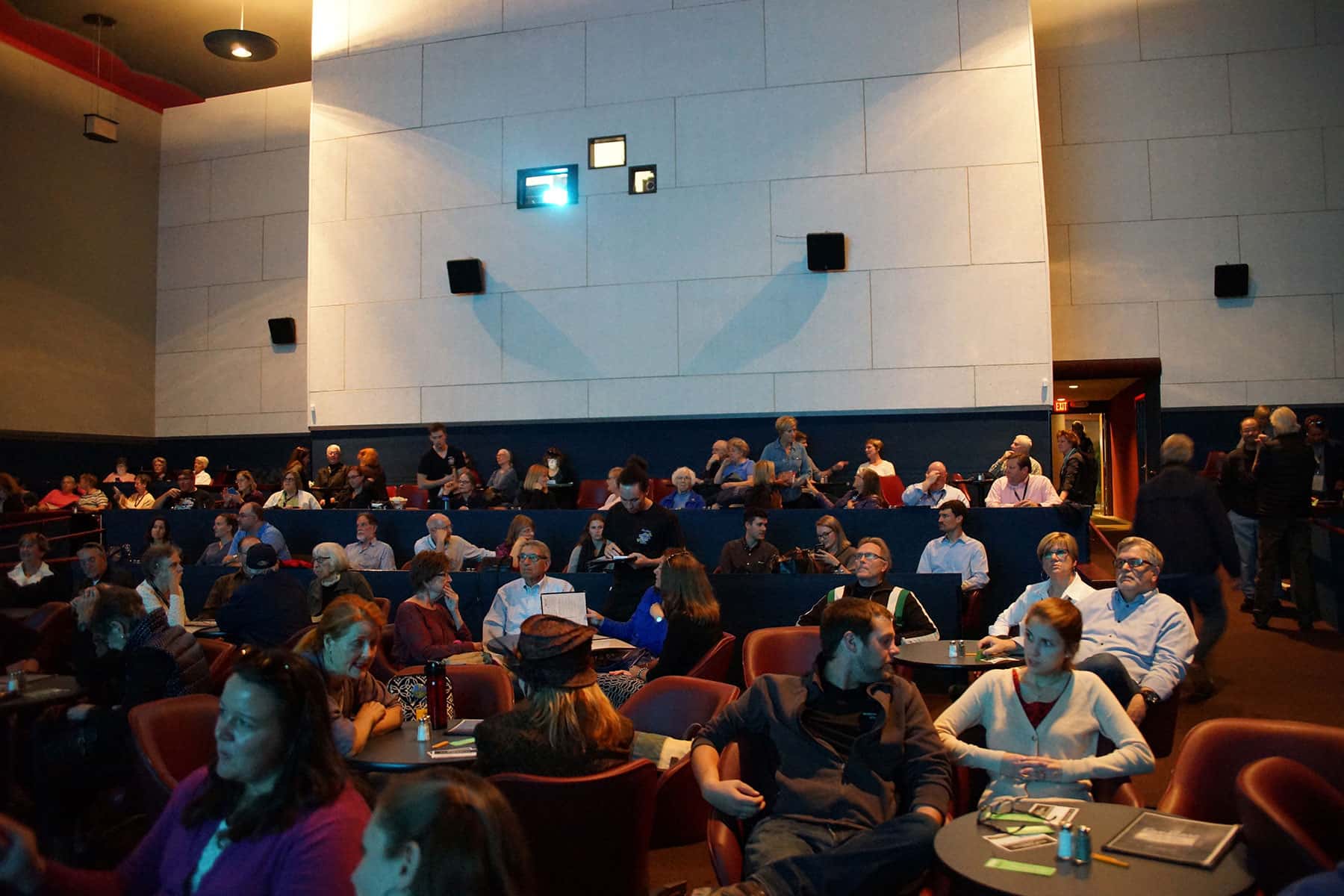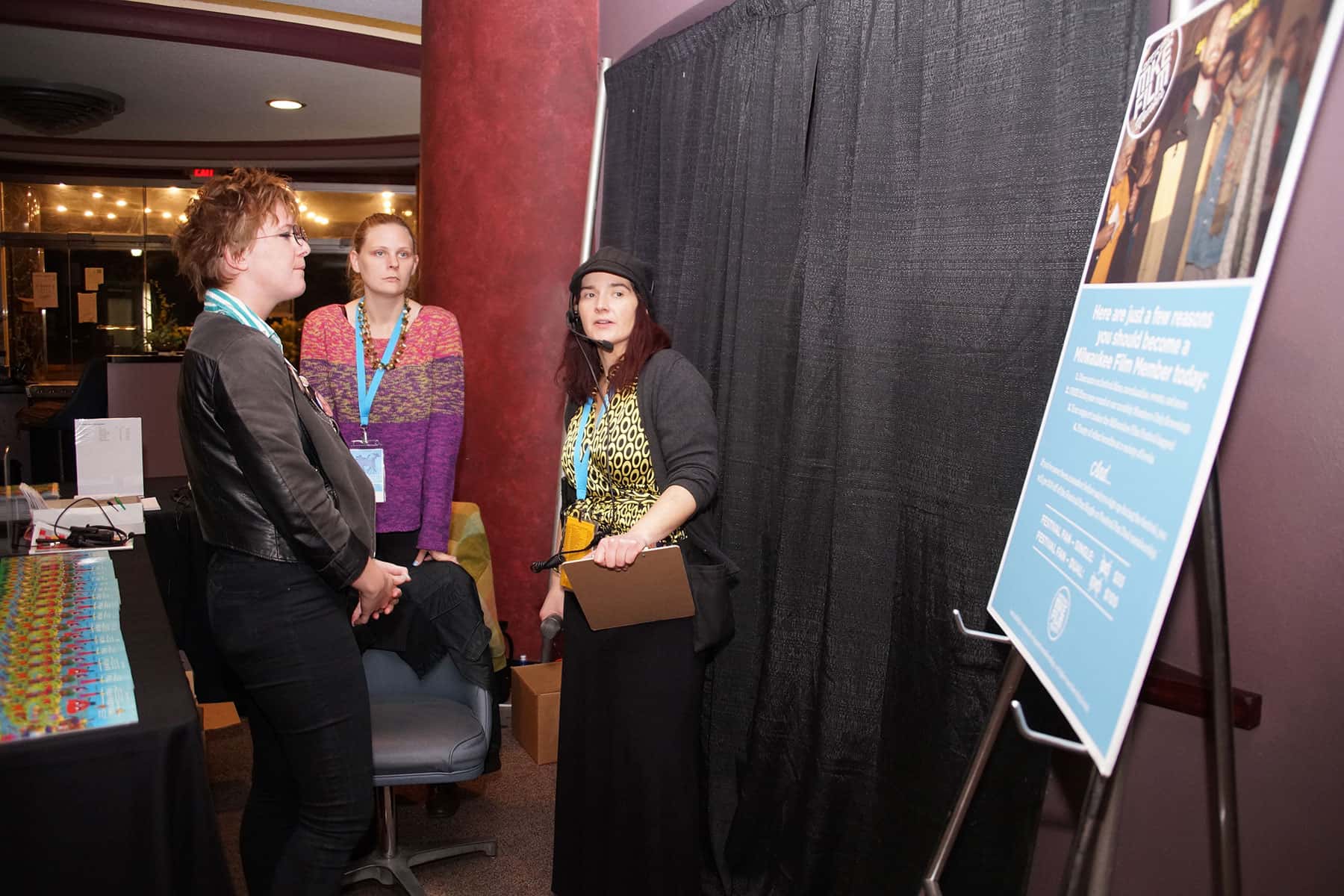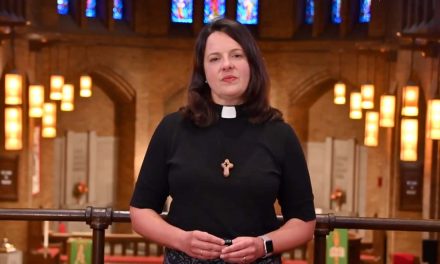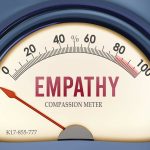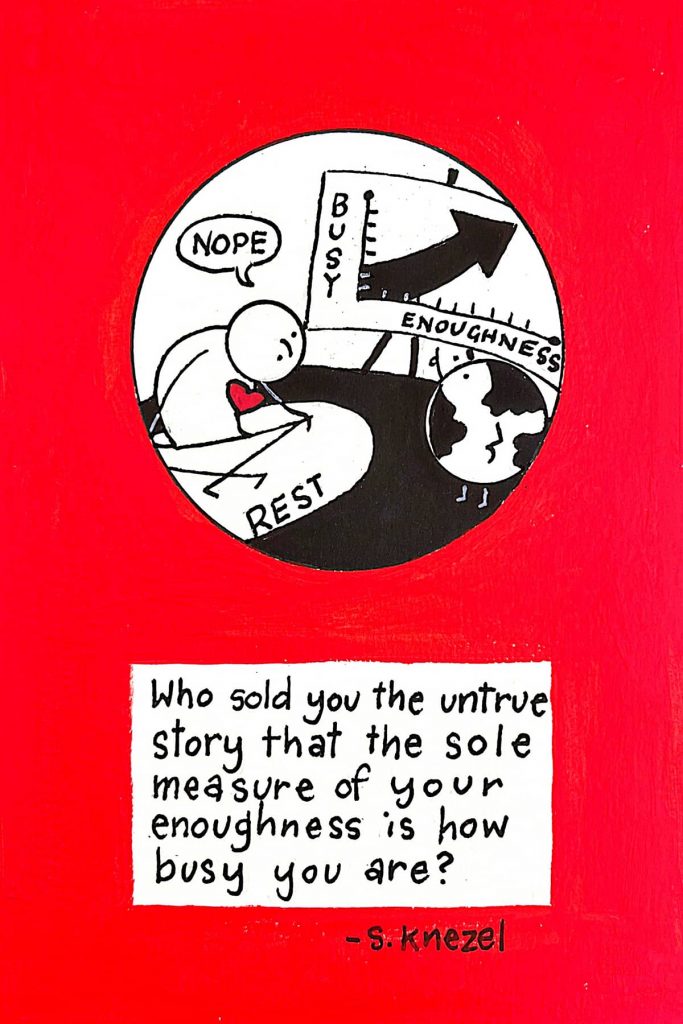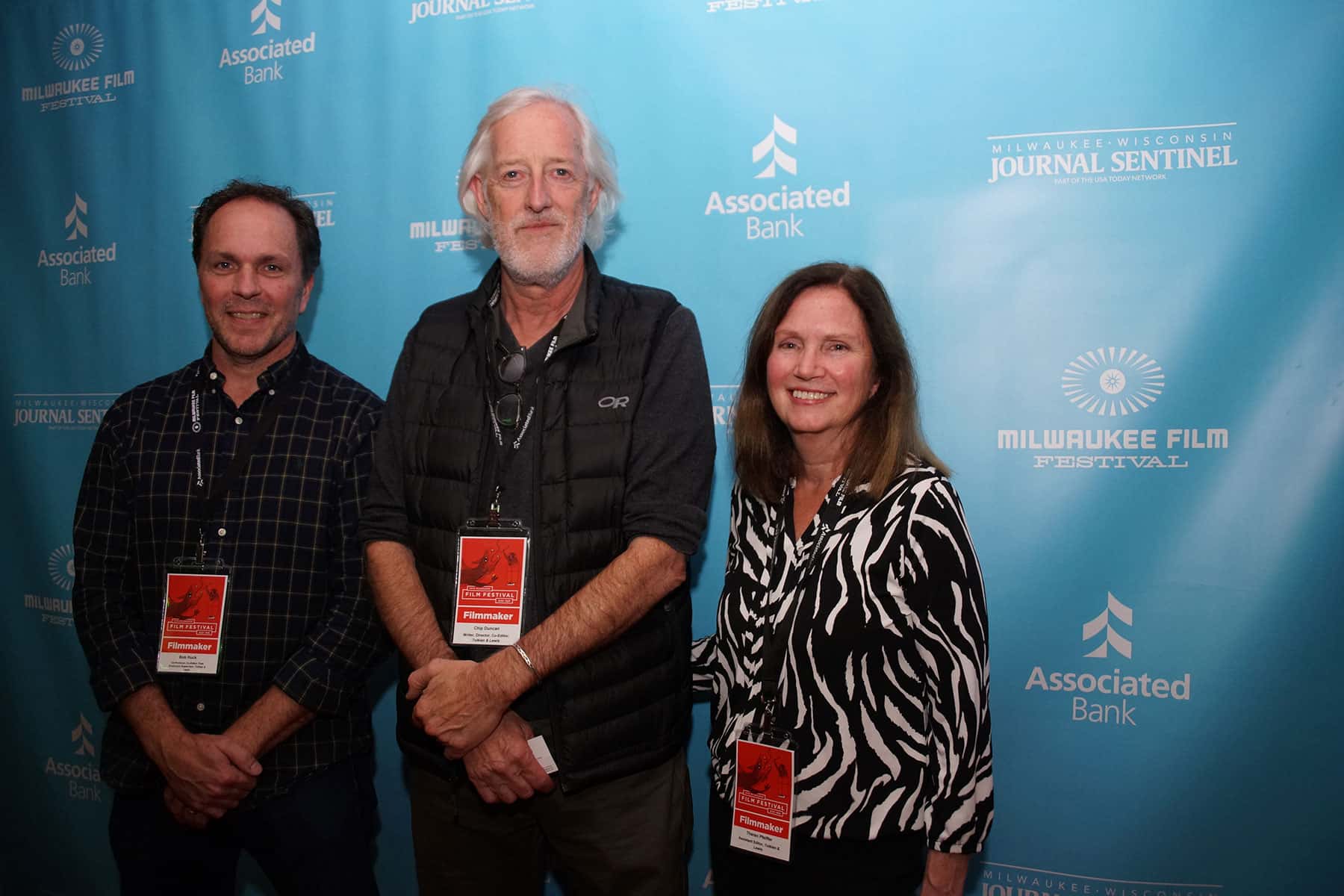
Internationally acclaimed filmmaker and author Chip Duncan premiered his latest documentary at the Milwaukee Film Festival, about legendary authors J.R.R. Tolkien and C.S. Lewis, on October 3 at the Fox Bay Cinema.
The screening was packed to theater capacity with two hundred viewers. Even though Duncan and his production group are based in Milwaukee, his features do not often have an opportunity to be presented locally.
“Tolkien & Lewis: Myth, Imagination and the Quest For Meaning” highlights a rainy evening in 1931 at Oxford University’s Magdalen College. On that night, C.S. Lewis invited fellow scholar J.R.R. Tolkien, and Hugo Dyson to dinner. The conversation that followed over the subsequent hours remains the stuff of legend. It focused on myth, ritual, faith, and the imaginative process.
“Lewis made his entire conversion to Christianity in one evening. It happened during an eight hour conversation, which meant he was arguing against Tolkien and Dyson for most of the evening, otherwise it would have been a short conversation,” said Duncan, during the film panel discussion. “So the question was, what did they talk about? Only Lewis had written about that evening. So when we decided to try and explore it as a film subject, we looked for people globally that could articulate other perspectives that Lewis might have articulated that night.”
On one side, Dyson and Tolkien argued that Christianity followed similar traditions to other myths but that it was “the true myth.” As a former atheist who at the time had become a theist, Lewis argued from his non-Christian perspective. It was only known that discussion ended with Lewis accepting Christianity.
The documentary explored the questions discussed between the three men, that go to the heart of the human search for the meaning of life, and a relationship to God. Tolkien and Dyson raised issues about the universal quest and for Lewis the answers changed his life forever.
Few works of literature have enjoyed the success of Tolkien’s “The Lord of the Rings” and the “Chronicles of Narnia” by Lewis. At the core of each author’s work was a creative process filled with a deep understanding of the role that myth, imagination, and faith played in their own lives, as well as those of their characters and readers.
“That connectivity between the material world and the heavenly world, between the world that we see here and the world that we have only a spiritual connection to, is precisely what mythology is meant to do, to create that bridge, create that understanding of our role in this cosmic battle taking place,” said Dr. Reza Aslan, an Iranian-American author and religious studies scholar featured in the film. “It is true that myths provide answers to a lot of fundamental questions asked, essential questions. But I think more importantly, what they do is help us frame the questions of reality a lot better so that we can say, who are we? What is important to us? What are the things that we would fight for, and the things that we die for?”
At the time of the discussion, Tolkien was a professor at Oxford with a passion for mythology and ancient languages. A devout Catholic, he authored the manuscript “The Book of Lost Tales” and invented an original language called Elvish.
“Because of the words we use, and because of the language that shapes our consciousness, we all live in a sub-created world. We live in the world that we have named,” said Verlyn Flieger, author and professor of the works of J. R. R. Tolkien. “If we can start by distinguishing truth from fact, then myth is what gets at whatever perceived or imagined truth there is behind the phenomenon of our world and gives us meaning.”
The writings of Tolkien and Lewis have taken readers to enchanted landscapes filled with dark powers, and along quests of the most unlikely heroes. Like many great myth makers, both authors use their imagination to open windows of perception and define reality in order to explore the transcendent of God. They propose questions about good and evil, the nature of truth, and life itself.
In an essay Tolkien wrote that, “We have come from God, and inevitably the myths woven by us, though they contain error, will also reflect a splintered fragment of the true light, the eternal truth that is with God. Indeed only by myth-making, only by becoming ‘sub-creator’ and inventing stories, can Man aspire to the state of perfection that he knew before the Fall.”
To some people, all myths are true. To others, myths are subjective, their truth colored by personal experience, history, culture, and ritual. It is through myth and ritual that people were able to explore the nature and the meaning of what most religions define as supernatural. It is through myth and ritual that societies are able to explore what it means to live a human life
“Myth is the belief structure, the stories, the cultural framework, the background that surrounds and makes our world. It tells us who we are, and who we were, and in some cases who are going to be,” said Flieger, in her interview.
A key point in the documentary was a quote by Lewis to his friend Arthur Greeves. In the letter of October 18, 1931 he said, “Now what Dyson and Tolkien showed me was this: that if I met the idea of sacrifice in a Pagan story I didn’t mind it at all: again, that if I met the idea of a god sacrificing himself to himself, I liked it very much and was mysteriously moved by it. Again, that the idea of the dying and reviving god similarly moved me provided I met it anywhere except in the Gospels. The reason was that in Pagan stories I was prepared to feel the myth as profound and suggestive of meanings beyond my grasp even tho’ I could not say in cold prose ‘what it meant.’ Now the story of Christ is simply a true myth: a myth working on us in the same way as the others, but with this tremendous difference that it really happened.”
“Tolkien & Lewis: Myth, Imagination & The Quest For Meaning” explored the central theme of “the true myth” with experts and scholars weighing in from various perspectives. Lewis said that reason was the function of truth. But imagination was the function of meaning. Therefore, the search for meaning was the goal of imaginative literature and myth.
“It is a shame that in our modern parlance, myth has come to be equated with falsehood. Because, in fact, all myths are by definition true. What I mean to say is that within themselves they inhere credibility,” said Dr. Aslan. “The very awe that we experience, when we are encountering the mystery of the natural world, is precisely what compels us to look beyond that world. But it’s only natural that the world beyond is going to parallel the world that we’re now in.”

